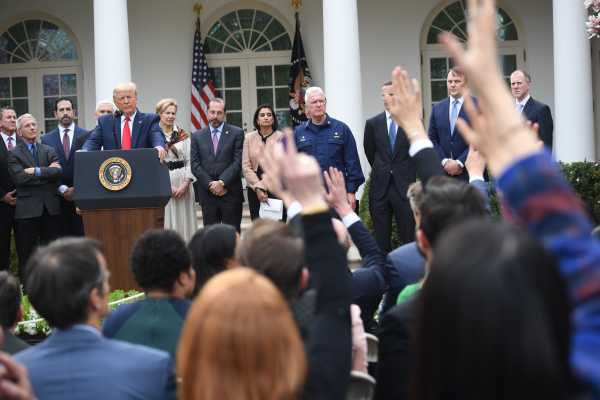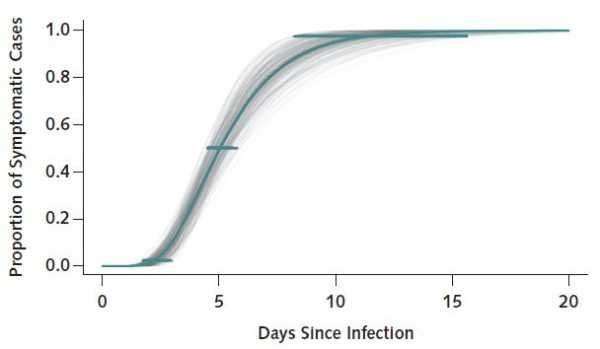
On Saturday, March 7, President Donald Trump was photographed at his Mar-a-Lago resort with a Brazilian official who has since been diagnosed with the Covid-19 coronavirus. Based on that, and per best-practice guidelines, the president should have put himself in quarantine for 14 days — the amount of time the CDC recommends for travelers returning from Covid-19 impacted countries. It’s also generally the time frame used for people who may have been exposed to the virus but haven’t been tested.
The obvious concern is that Trump may have also contracted the virus, and could get quite sick since he’s high-risk and spread it to others.
On Friday, during a press conference in the Rose Garden, Trump was asked if he was thinking about taking any precautionary measures like self-quarantine. (Self-isolation is slightly different — it’s for when you have a confirmed case of Covid-19 but don’t need immediate medical attention.)
“No,” Trump said. “We have no symptoms whatsoever.”
The president later responded to a question saying that he was “most likely” to get tested and that his team was “working on a schedule” for that. Trump did not explicitly say if he has been tested or not.
Related
How to self-isolate if you think you have coronavirus
But these responses set a bad example for the country. It’s still possible he’s infected with the virus, despite still feeling fine. And it now appears more than one person who visited Mar-a-Lago last weekend has become sick.
To protect those around him, he ought to be in quarantine, and the entire administration should be practicing better hygiene. (The press conference itself was noteworthy for Trump shaking hands with administration officials and business leaders, and seemingly dozens of people touching the same microphone.) And he ought to be letting people know that if they too were exposed to someone with a confirmed case of the virus, they should take the precaution of self-quarantine.
Scientists now know it’s possible to have the Covid-19 virus circulating through your body — replicating in your cells, growing in number — for days before showing symptoms. And it’s possible in some cases to pass the virus on to others before those symptoms show.
Just this week, scientists writing in the Annals of Internal Medicine published the latest estimate of the “incubation period” of the virus. That’s the figure that describes how long it takes from infection for symptoms to manifest. Their answer: “approximately 5 days.”

From this chart estimate, you can see that nearly everyone who develops symptoms of Covid-19 shows them around 10 to 15 days after the infection, and the majority get symptoms by around five days. It’s been six days since Trump might have come into contact with the virus. So he’s not quite yet in the clear.
If you’re wondering if you should be tested: Currently the CDC advises that “clinicians should use their judgment to determine if a patient has signs and symptoms compatible with Covid-19 and whether the patient should be tested,” and that people should call their healthcare providers before showing up in a doctor’s office if they think they are sick.
Further reading:
- Trump is breaking his own agency’s coronavirus guidelines by not self-quarantining
- What are the symptoms of coronavirus?
- Here’s how coronavirus spreads
Sourse: vox.com






